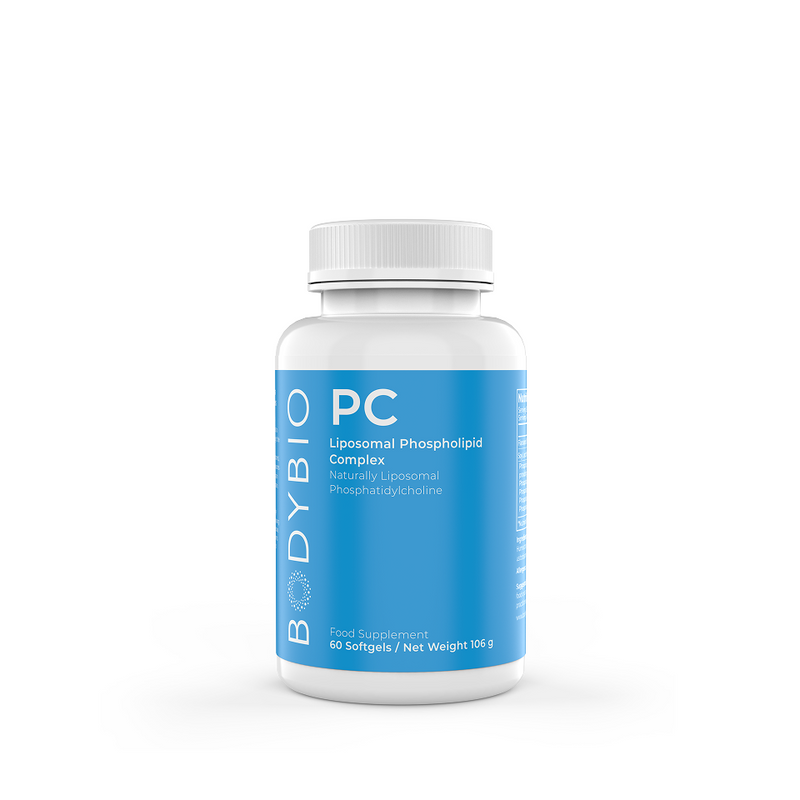How Medicinal Mushrooms Boost Your Brain Health
Key Takeaways:
Key Points:
- Mushrooms are a superfood for brain health. Studies show they may be a powerful force behind nerve regeneration while improving learning, focus, and memory.
- Certain types of mushrooms (adaptogens and nootropics) can help increase neurotransmitters and calm the body during stressful seasons.
- Some of the best mushrooms for brain health include lion’s mane, reishi, chaga, and cordyceps.
There’s an ancient “hunter-gatherer” belief that healthy foods resemble the part of the body they support. For example, ginger — a spice shaped like the stomach — is supposed to be good for the stomach. Grapefruit may improve breast health, and so on…
We can’t exactly vouch for this method of choosing your food (it’s fairly unscientific), but we are fascinated by the shape of certain mushrooms and their important connection to brain health.
…Maybe there’s something to it.
Mushrooms can impact the brain in all sorts of ways — from boosting mood to increasing productivity, and even preventing disease.
Let’s explore the benefits of this forager’s best-friend and find a few tolerable ways to consume it (for those who struggle to eat mushrooms).
Table of Contents:
- Should You Use Mushrooms for Brain Health?
- Mushrooms to Manage Stress and Hyperactivity
- Top 4 Mushrooms for Brain Health
- How to Eat More Mushrooms for Brain Health
- More Ways to Improve Brain Health and Beat Aging
Should You Use Mushrooms for Brain Health?
Absolutely. Mushrooms are an ancient medicine — used by our ancestors for their antimicrobial effects and powerful healing benefits. Packed full of healthy fiber, polysaccharides, and minerals, mushrooms are essentially a superfood for brain health.
Particularly, mushrooms are studied for their influence over degenerative diseases, like Alzheimer's and dementia. Most of the prescription medications we have available for these diseases focus on slowing the effects of neurodegeneration — but nothing stops Alzheimer's altogether, or reverses it…so far.
Scientists are considering mushrooms as a potential therapy that changes the way we treat neurodegeneration. Instead of a band-aid solution, mushrooms show promising effects for nerve regeneration and neuronal survival.
There are more than 14,000 different species of mushrooms — and each of them has different healing properties. Some are great for cognitive function and nerve health. Others help with hyperactivity, stress management, and can improve the production of neurotransmitters, like dopamine.
Mushrooms to Manage Stress and Hyperactivity
No matter what concerns you have with brain function, mushrooms can probably help. Besides neurodegeneration, mushrooms are great for stress management, brain chemical balance, and hyperactivity. Nootropic mushrooms have shown promising benefits in treating symptoms of Attention Deficit Hyperactivity Disorder (ADHD), while mushrooms in the adaptogenic category can help relieve stress and calm your nervous system.
It all comes back to the inner workings of the brain. Nootropic mushrooms help your brain balance neurotransmitters, like dopamine and serotonin. In cases of ADHD, these neurotransmitters play key roles, and finding the right balance can be tricky.
Adaptogens are a group of herbs and plants that help your body to adapt to the stress around you — and they include some mushroom variants. Instead of removing stress altogether, they help your body better manage it, and return your system to homeostasis after cortisol highs.
Top 4 Mushrooms for Brain Health
Which mushrooms are best for brain health? We’re learning more every day, but these mushrooms are well-studied for their positive impact on the brain and body.
1) Lion’s Mane for Brain Health
Considered a nootropic, Lion’s Mane is specifically known for its ability to boost nerve cell growth and maintain healthy nerve cells. This is groundbreaking, especially in cases of neurodegeneration — because it may be able to improve symptoms of Alzheimer's, Dementia, and Parkinson’s.
Lion’s Mane can also help with things like depression, anxiety, reduced inflammation, and immune system function. It has powerful antioxidant properties and it’s a great supplement to help boost neurotransmitters or balance them out in the brain.
2) Reishi for Brain Health
In one study, the use of Reishi mushrooms showed significant improvement in cognitive function. This is likely due to the polysaccharide content, which in the study, “enhanced neurogenesis” — or the development of new neurons in the brain. This can be extremely helpful in cases of neurodegenerative diseases, but it’s also great if you need an extra shot of brilliance in your everyday brain function. Perhaps to learn a new language, get through a tough day at work, or improve your performance on a school project.
Other benefits of reishi include blood sugar balance, immune system wellness, decreased symptoms of depression, and heart health.
3) Chaga for Brain Health
Another great mushroom for brain health is Chaga. In studies, it’s shown to decrease oxidative stress, boost serotonin, and reduce inflammation (specifically in the brain). It’s even been tested as a solution to amnesia — with impressive results.
Supplementing with Chaga may even help your body restore glutathione levels (one of the body’s most powerful antioxidants). This is especially helpful for people struggling with depleted glutathione, often the result of chronic illness or long-term stress.
4) Cordyceps for Brain Health
This mushroom is a fantastic dietary addition to help with learning and memory. It may even help you increase your attention span, thanks to polypeptide complexes. As an antioxidant, cordyceps helps to scavenge free radicals from the cell, boosting cellular health in the brain and cutting through brain fog.
Cordyceps is a popular remedy in Chinese medicine. In addition to brain health, cordyceps is known to improve kidney function, immune system wellness, heart health, and endurance.
How to Eat More Mushrooms for Brain Health
Let’s be honest: not everyone loves mushrooms. Even though they’re fantastic for brain health, mushrooms like Cordyceps and Lion’s mane can be difficult to get used to. But don’t count them out yet. There are a number of easy ways to microdose mushrooms so you can get used to them and eventually incorporate them into everyday life.
- Mushroom Coffee. If you enjoy a morning cup of joe, why not include mushrooms? There are a number of coffee brands that include adaptogenic mushroom powders, without impacting the taste of your morning latte.
- Mushroom Supplements and Powders. Getting mushrooms through your diet is always the better option, but mushroom supplements can be a good resource for adding a variety of species and experimenting with their benefits. Whether you add them to your smoothie or workout beverage, they can help you get used to regularly consuming mushrooms.
- Hide Your Mushrooms. It’s easy to add mushrooms to recipes like quiche, chili, and meatloaf. You’ll get all the added nutritional benefits without tasting the mushrooms. Challenge yourself to see how many dishes you can add mushrooms to. Even “regular” varieties like white buttons and cremini have impressive nutritional benefits too.
Every mushroom offers a unique flavor profile. As you begin incorporating mushrooms into more at-home recipes, pay attention to your cognitive function and how you feel overall. Most likely, you’ll notice a difference!
More Ways to Improve Brain Health and Beat Aging
You may have noticed that our favorite brain-boosting mushroom picks have an extremely beneficial impact on the cell, especially neurons. Quite literally, our cellular health is at the root of any illness or symptom. Improving cellular function can only benefit our whole body's health, moving us closer to wellness.
Along with powerful mushrooms, another beneficial remedy to boost cellular health is phosphatidylcholine (or PC). While mushrooms provide ample nourishment to the cell and help to cleanse it of free radicals, BodyBio PC can improve membrane health, successfully keeping nutrients in and toxins out. The perfect duo for fighting brain fog and cognitive decline.
Chong, P. S., Fung, M. L., Wong, K. H., & Lim, L. W. (2019). Therapeutic Potential of Hericium erinaceus for Depressive Disorder. International journal of molecular sciences, 21(1), 163. https://doi.org/10.3390/ijms21010163
Giridharan, V. V., Thandavarayan, R. A., & Konishi, T. (2011). Amelioration of scopolamine induced cognitive dysfunction and oxidative stress by Inonotus obliquus - a medicinal mushroom. Food & function, 2(6), 320–327. https://doi.org/10.1039/c1fo10037h
Huang, S., Mao, J., Ding, K., Zhou, Y., Zeng, X., Yang, W., Wang, P., Zhao, C., Yao, J., Xia, P., & Pei, G. (2017). Polysaccharides from Ganoderma lucidum Promote Cognitive Function and Neural Progenitor Proliferation in Mouse Model of Alzheimer's Disease. Stem cell reports, 8(1), 84–94. https://doi.org/10.1016/j.stemcr.2016.12.007
Sabaratnam, V., Kah-Hui, W., Naidu, M., & Rosie David, P. (2013). Neuronal health - can culinary and medicinal mushrooms help?. Journal of traditional and complementary medicine, 3(1), 62–68. https://doi.org/10.4103/2225-4110.106549
Yuan, G., An, L., Sun, Y., Xu, G., & Du, P. (2018). Improvement of Learning and Memory Induced by Cordyceps Polypeptide Treatment and the Underlying Mechanism. Evidence-based complementary and alternative medicine: eCAM, 2018, 9419264. https://doi.org/10.1155/2018/9419264
Zhao, Q., Jiang, Y., Zhao, Q., Patrick Manzi, H., Su, L., Liu, D., Huang, X., Long, D., Tang, Z., & Zhang, Y. (2023). The benefits of edible mushroom polysaccharides for health and their influence on gut microbiota: a review. Frontiers in nutrition, 10, 1213010. https://doi.org/10.3389/fnut.2023.1213010







